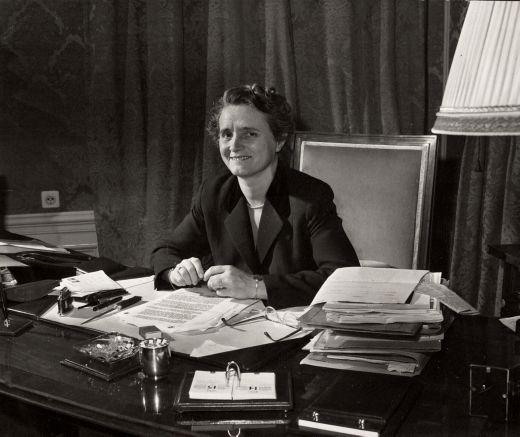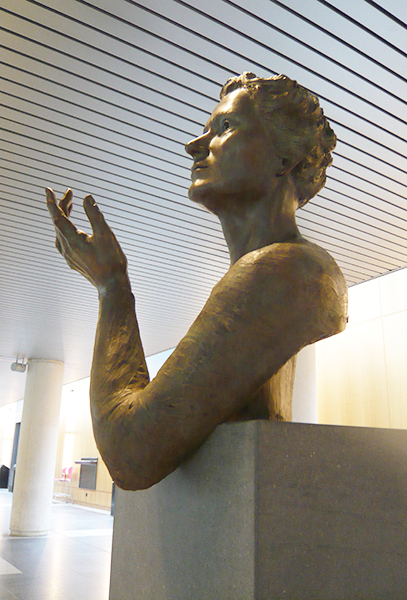Marga Klompé was charming, decisive and founder of the welfare state
In the ‘Telling History’ section, we dive into Tilburg University’s rich Heritage Collections. This time Pieter Siebers, Academic Heritage Project Manager, talks about the woman after whom the new education building is named. Who was Marga Klompé?

On July 15, on one of those scorching hot summer days, Vice-President Paulina Snijders of the Executive Board announced the name of the second education building. The virtually “energy-neutral” building will accommodate about 1,000 students and is expected to be completed around Christmas 2023. The building will be named after Marga Klompé, the first female minister of the Netherlands and the first woman to hold the honorary title of Minister of State.
Her name will not mean anything to many students (and probably staff), but Marga Klompé (1912-1986) can be considered one of the most vigorous founders of the welfare state as it emerged in the postwar Netherlands. For example, as Minister of Culture, Recreation and Social Work, Klompé was responsible for the introduction of the Social Assistance Act in 1965, which guarantees every Dutch citizen a minimum subsistence income, and for improving the state pension.
Honorary doctorate
In 1982 she was awarded an honorary doctorate by the university—then called Katholieke Hogeschool Tilburg—for what was called her quest for a social and meaningful society.
At the presentation, then honorary supervisor Jacques Stalpers (1922-2003), endowed professor of Social Pedagogy, referred to the French philosopher Domenach: “The revolution leads to nothing if it does not give new meaning to existence.” This marked Klompé’s struggle for a better world.
Chair
Marga Klompé was active in the resistance during World War II and later dedicated herself to a multitude of social issues (the elderly, refugees, and poverty) and to international justice. Among other things, she was active in the struggle against apartheid in South Africa. In 2010, the (special) Marga Klompé Chair was established at the university, titled International Social Responsibility. This chair is held by Mirjam van Reisen.

Klompé studied chemistry (1929 to 1937) in Utrecht, where she received her PhD in mathematics and physics in 1941. During her studies, she was a member of Collegium Studiosorum Veritas, a student organization founded at the end of the 19th century for Catholic students.
She was Catholic but distanced herself from the church for some time in the 1930s after a faith crisis and, according to biographer Bosmans, maintained a lasting respect for other forms of religious practice. However, she always remained a member of the then KVP (Katholieke Volkspartij (Catholic People’s Party)), which merged into today’s CDA in 1972.
Education Building
The Marga Klompé building is the first on campus to be named after a woman, although there is already a hall in the Dante Building that bears her name. That building also houses a bronze statue of Klompé, created in 2012 by artist Margot Homan. It was unveiled by then Queen Beatrix. A second cast of the statue is in the building of the House of Representatives in The Hague.
Klompé was decorated several times. For example, she was appointed Grand Officer in the Order of Orange-Nassau in 1963, Knight Grand Cross in the Order of Orange-Nassau in 1971 and received the Cross of Merit of the Dutch Red Cross. Former Prime Minister Jelle Zijlstra (1918-2001) once said of her “that she always remained charming, for all her decisiveness, but in later years the decisiveness gained full prevalence. She also loved gin, and it must be said that she had a well-developed capacity in that area.”
Several streets and bridges in the country have been named after this politician, who was as moving as she was tenacious, and now the building that will be known as the Marga Klompé Building.
Translated by Language Center, Riet Bettonviel






